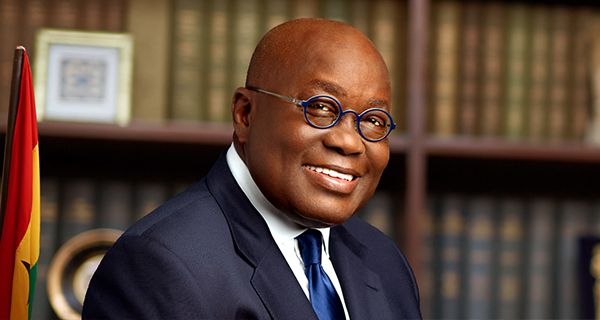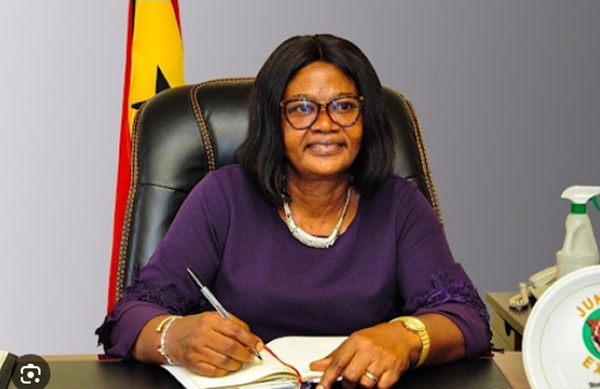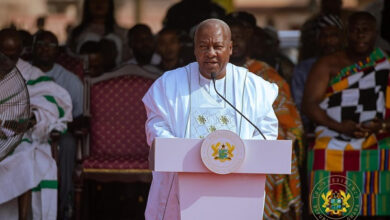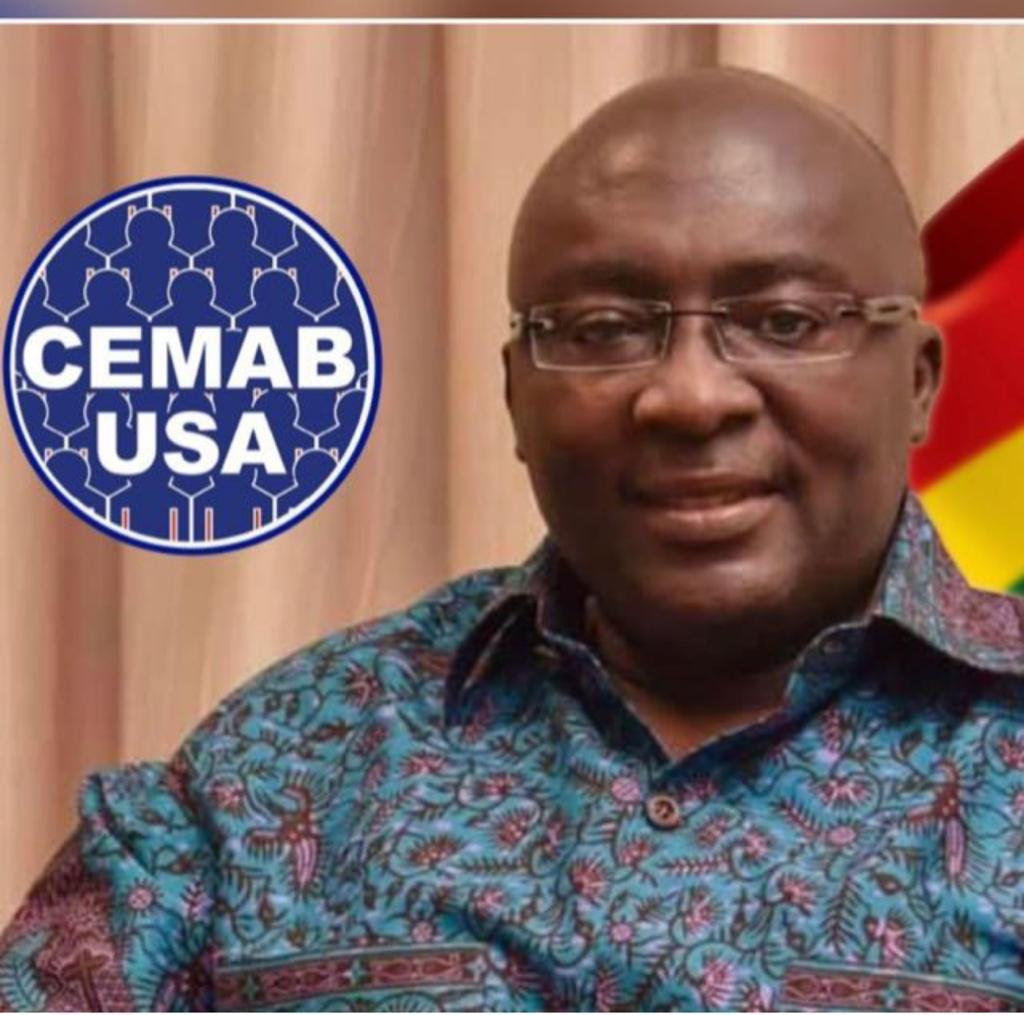7 Women, 4 PhDs, 7 Muslims, 10 ‘Promotions’: A breakdown of Mahama’s ministerial nominees
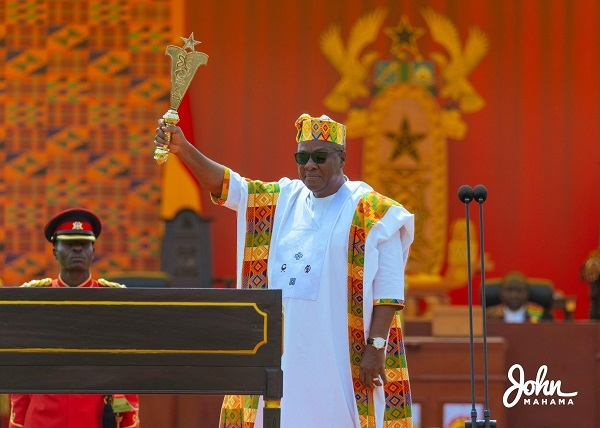
President John Dramani Mahama has completed the nomination of individuals to head the country’s local and central government ministries.
Some of these nominees have already been sworn into office after being approved by the Parliament of Ghana.
The president nominated 42 individuals for appointment as central government and regional ministers.
Sixteen (16) of these nominees are to serve as regional ministers, twenty-three (23) as ministers, and three (3) as ministers of state.
This article examines the breakdown of Mahama’s nominees in terms of gender, religion, educational qualifications, experience, and the regions they represent.
Gender
One of President Mahama’s campaign promises was that at least 30% of his appointees in his government would be women.
An analysis of the 42 nominees for the various ministries reveals that this promise has not been fulfilled in this area.
Out of the 42 nominees, only seven are women, making up 17% of the total nominations. The remaining 35 are men, representing a significant 83% of the total nominations.
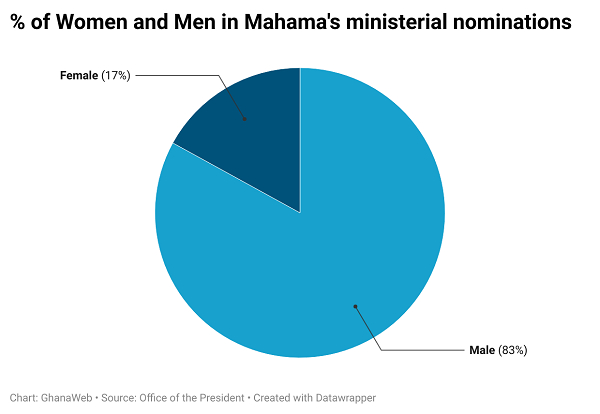
Of the 26 central government ministers, only four (15%) are women. Among the regional ministers, only three out of 16 are women, representing 19% of the total nominations.
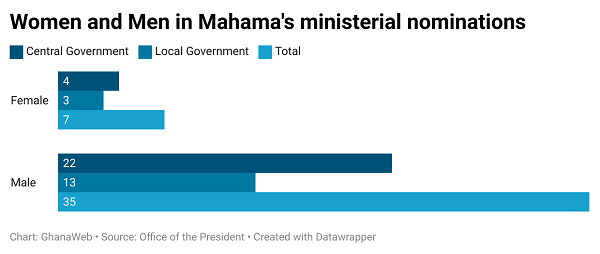
It is possible that the president will increase the percentage of female appointees through other areas of his government, such as the appointments of Municipal, District, and Metropolitan Chief Executives (MMDCEs) and Chief Executive Officers of state-owned enterprises.
Role in previous NDC governments
An analysis of the nominations also reveals that the president largely retained his appointees from his previous term in government, from 2012 to 2015.
Out of the 42 nominees, 18, representing 43% of the nominations, served in Mahama’s previous government, while the remaining 24 (57%) are newcomers.
For the central government ministries, 10 of Mahama’s nominees (38%) served as deputy ministers, while seven (27%) were ministers in his previous government.
Only eight (31%) of the nominees are newcomers.
For the regional ministries, only one nominee had served in Mahama’s previous government. One of the nominees was a former Member of Parliament, while the remaining 14 (88%) are newcomers.
Highest Educational Qualification
The ministerial nominees of President Mahama come from diverse educational backgrounds, ranging from bachelor’s degrees to doctorates.
Four (4) of the nominees (10%) hold doctorates (PhDs), 24 (57%) have master’s degrees, with some possessing more than two degrees, while 12 (29%) hold bachelor’s degrees.
Two (2) nominees, representing 5% of the total nominations, are medical doctors who also hold master’s degrees in other fields.
Region
Every region in the country received at least one (1) of the 26 central government portfolios given out by President Mahama, in addition to their regional ministry nominations.
The Volta and Northern regions received the most nominations, with each region having four nominees. The Ashanti, Eastern, Bono, Western North, Western, and Greater Accra regions each received three nominations.
The remaining regions received two nominations each.
Members of Parliament
President Mahama also fulfilled the provision of the 1992 Constitution of Ghana, which requires that the majority of his ministers be appointed from Parliament.
Out of the 42 nominees, 23 are members of the 9th Parliament, representing 55% of the total nominations.
For the central government ministries, 22 of the nominees (85%) are MPs, while four (15%) are not legislators.
However, for the local government minister-designates, only one is an MP, with the remaining 15 not being members of Ghana’s Parliament.
Religion
Mahama’s nominees include individuals from two of the three main religious groups in the country; Christianity and Islam.
Out of the 42 nominees, 35 (83%) are Christians, the dominant religious group in the country, making up over 70% of Ghana’s population.
Seven (7) of the nominees, representing 17% of the total nominations, are of the Islamic faith, the second-largest religious group in Ghana, which constitutes about 20% of the population.
Source: www.ghanaweb.com

